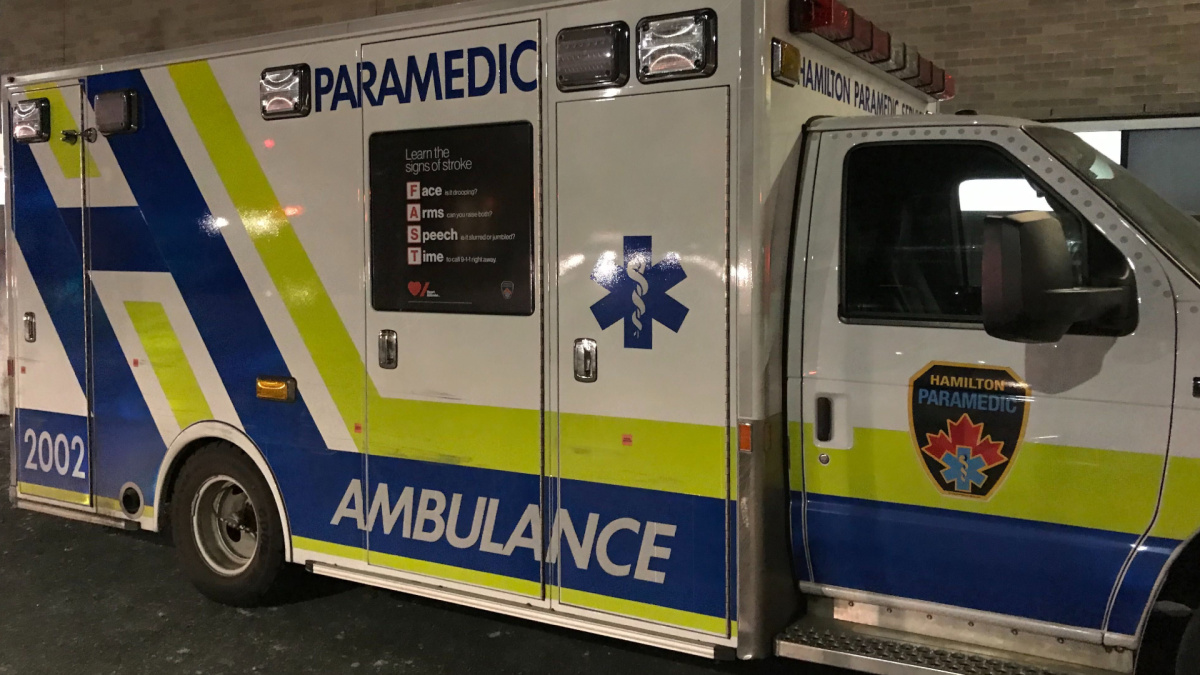Counsel for one of two Hamilton paramedics charged with failing to provide the necessaries of life suggested to a court on Wednesday that there was no “marked departure” or conduct that endangered the life of a shooting victim in 2017.

Both Steve Snively and Christopher Marchant were arrested and charged in Aug. 2018 following an investigation into the Dec. 2, 2017 incident that saw Yosif Al-Hasnawi, 19, die from a single bullet wound on Sanford Avenue near Main Street East.
A number of witnesses told investigators that Snively and Marchant accused Al-Hasnawi of exaggerating his injuries, and allege the paramedics took too long to take him to a hospital.
In a post-mortem examination, a forensic pathologist concluded Al-Hasnawi’s wound was not from a pellet gun, as originally believed, but from a .22 calibre gun.
During closing arguments for the two accused, counsel Jeff Manishen questioned a submission from the Crown that suggests a number of actions from the pair equaled a “marked departure” from the standard of care.
“If you have various acts that could be considered a departure from standard of care, my submission is still that you’d have to consider whether the conduct — considered in totality — constituted a marked departure that endangered life,” Manishen told Justice Harrison Arrell.
Manishen, Marchant’s counsel, submitted to Arrell that the paramedics had the “honest belief” that Al-Hasnawi was suffering from only a pellet gun wound since what they saw and everything that was said to them by bystanders pointed to that.
Counsel said Marchant acknowledged the victim’s penetrating wound in his reporting but suspected a pellet gun injury due to a lack of blood.
“What Mr. Marchant believed, that he sincerely and genuinely believed, is that it was a superficial BB gun or pellet wound to the abdomen,” said Manishen.
The paramedics’ counsel also circled back to testimony from an emergency medicine specialist and author of chronicles on medical errors who suggested that Marchant didn’t have the training to prevent a ‘cognitive bias’ of the problem he encountered to mitigate against fault.
In closing, Manishen said there was “room in certain places” to criticize the paramedic for what he did or didn’t do but it was nothing more serious than a departure from the standard of care.
Dangerous lift
During Wednesday’s session, Manishen addressed some of the Crown’s specific accusations from 2017 including “a dangerous lift” in which counsel Scott Patterson during the trial asked Marchant why he didn’t stop a Hamilton police officer from lifting Yosif Al-Hasnawi by his arms from the concrete sidewalk after he was shot.
The Crown suggested that Marchant should have known it was not a good idea to lift a patient without first knowing his injuries.
Manishen suggested it was simply “miscommunication” between the paramedic and Const. Michael Zezella.
“Marchant had in mind that he and Snively were going to move him. Zezella took from that it was intended for Zezella to assist. Marchant didn’t anticipate Zezella was going to do anything.”
Counsel also suggested that Marchant did not “discard” Al-Hasnawi back to the sidewalk when the lift failed but that Yosif’s hand “fell to his body” when he let go of it.
Manishen said another lift executed by the victims brother moments later was “unanticipated” and that the participation of the paramedics with that attempt was a “reasonable alternative” to what was already happening.
Load and Go
The Crown’s submissions also said the paramedics should have recognized the incident as “a trauma based scenario with the respiratory distress” and that Al-Hasnawi needed to be treated as a load and go patient.
Marchant’s counsel said despite Yosif expressing he couldn’t breathe, a physical examination and secondary assessment indicated distress was not apparent. He said the shock could have been from a “variety of potential causes” and not necessarily related to the issue of a penetrating abdominal trauma.
Manishen said the paramedics likely didn’t believe the wound hadn’t gone any farther than penetrating the skin and that their “index of suspicion” on the extent of the injury was likely “very, very low.”
Counsel also suggested that the decision to take Al-Hasnawi to a St. Joe’s as a psychiatric patient instead of Hamilton General as a trauma case was dictated by the “reasonable choice” that Al-Hasnawi’s concerns were behavioral.
The judge-only trial resumes on Thursday.
Justice Harrison Arrell is expected to hear a submission from Snively’s counsel Michael DelGobbo.


_AUG_2_848x480_1291185731741.jpg?w=1200&quality=70&strip=all)



Comments